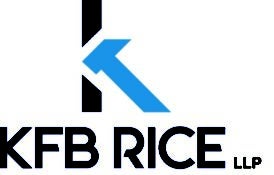If you were solicited by accounting firms KPMG, BDO Seidman, Deloitte or PwC to purchase tax investment strategies, then you may have legal recourse against the promoters, including the law firms, investment advisors and banks who assisted in the marketing, sale and implementation of these tax schemes.
What Is An Abusive Tax Shelter?
A tax shelter is a device used to reduce or eliminate the tax liability of a taxpayer. Some tax shelters are entirely legitimate, but abusive tax shelter cases lack economic substance and involve serious misconduct by the tax shelter promoters and their accomplices.
Abusive Tax Shelters Identified By The IRS
- Son of Boss (Foreign Currency Option Tax Shelter)
- COBRA (Currency Options Bring Reward Alternatives)
- PICO (Personal Income Company)
- FLIP (Foreign Leveraged Investment Program)
- OPIS (Offshore Portfolio Investment Strategy)
According to tax authorities, none of these transactions comply with federal and state income tax laws.
What Is Economic Substance?
The economic substance doctrine is a judicially created doctrine that is used by a court to deny the tax benefits of a tax-motivated transaction, even though the transaction may satisfy the literal requirements of a specific provision in the Internal Revenue Code. The doctrine generally disallows tax benefits if the transaction does not result in a meaningful change to the taxpayer’s economic position other than a purported reduction in federal income tax. Many courts have disagreed as to how the economic substance doctrine should be applied, so Congress has proposed legislation to codify the economic substance doctrine.
The proposed legislation would add Section 7701(o) to the Internal Revenue Code and provide that any transaction or series of transactions to which the economic substance doctrine is relevant is treated as having economic substance only if the transaction changes, in a meaningful way, the taxpayer’s economic position, and the taxpayer has a substantial purpose for entering into such transaction.
California also imposes its own non-economic substance penalty, commonly referred to as the NEST penalty. It imposes a 20 percent penalty for understatements attributable to noneconomic substance transactions, and increases to 40 percent for transactions that are not adequately disclosed. In California, a transaction lacks economic substance either because: it lacks an economic benefit or there is no bona fide, non-tax California business purpose for entering into the transaction.
If you are being audited by the Internal Revenue Service, Franchise Tax Board or any other state or local tax authority, contact the tax attorneys at David Lee Rice, A Professional Law Corporation, at (310) 517-8600 immediately for a consultation.

